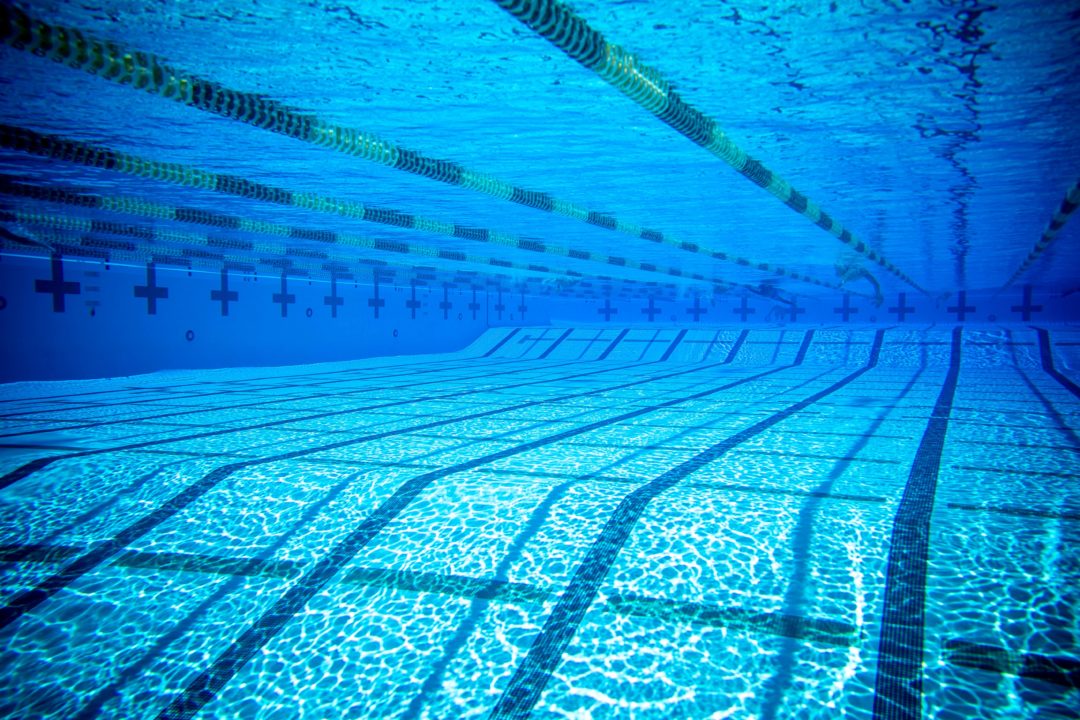Courtesy: Summer Finke
I’ve always feared heights. Looking down at the never-ending space between your toes and the ground, the feeling of your stomach in your throat as you fall towards the unknown. The adrenaline rush that came with jumping never intrigued me.
It’s been said that an athlete dies two deaths: once when life ends, and once when life as an athlete ends. From the outside looking in, this statement may seem dramatic, but from the inside looking out nothing could be further from the truth. The feeling of hopelessness and loss when you suddenly wake up and realize that your main identity in life, the purpose you have put your whole life into is suddenly gone on a random Tuesday morning is indescribable.
As an elite athlete, your whole life is built around a certain structure and an “all or nothing” mentality. We’re told when to eat, what to eat, when to sleep, when to wake up, how to act, when to practice, who to socialize with, what grades we can get, when to take classes, etc. There is very little room for deviation or preparation for the next steps in life once sport is over. No coach wants an athlete to go into their first year of college preparing for their last. “Live in the moment, give it everything you can, focus on the now” is what sport is all about. But let’s face it, even the best athletes are going to retire at some point. And what happens when they do?
It was April 9th, 2019, and I was falling. The clock on my phone turned to midnight as I frantically called my dad crying while trying to find a way to continue competing in the sport I loved. “I could just train for one more year, or go to grad school, or swim with masters. I know I can do it. I just have to find a way”. But there wasn’t a way. Swimming was done with me long before I was done with swimming.
Facing the reality that my identity as a swimmer now only consisted of a fraction of my life when it once was my whole life was one of the most difficult things I had to face. I didn’t know how to have a normal day without sport; how to have a normal conversation without mentioning how hard practice was, or even how to introduce myself to a stranger without saying “Hi I’m Summer and I’m a swimmer”. All these things seemingly changed within a single moment.
At first, it seemed too good to be true. I could wake up when I wanted to, I could eat what I wanted, go where I pleased without worrying about missing practice, do things and activities without fearing what would happen if I got injured, but then the days passed and like most things, it was too good to be true.
I felt alone. I didn’t know who I was without my sport. I didn’t have a purpose to devote my time to now that I was done. What did I like to do for fun? I never had the spare time to discover or explore other interests. Who were my actual friends and who were only my teammates? Spoiler alert, they’re not the same thing. It’s not sports’ fault for making me feel so alone, but it was something no one prepared me for.
It took over 6 months for me to figure out how to properly fuel my new body. It took over 9 months for me to grasp the fact that I was no longer a collegiate swimmer. It took over 10 months for me to stop introducing myself as “Summer the swimmer”. It took almost a year for me to jump back into a pool and enjoy it. It took almost two years for me to be able to watch competitive swimming without feeling like I had failed. And to this day I work on emotionally dealing with building and discovering who I am as a person.
Advice for athletes going into retirement or who have recently retired. It takes time. You’re allowed to feel all of your emotions even if others don’t have shared experiences. Reach out to past teammates. There are plenty of others who have retired and gone through similar situations. Utilize your resources. Athletic development departments have excellent staff members who can help with resumes, nutrition, mental health, etc.
Don’t be afraid to ask for help. There is no set timeline for life. You’ll discover your passions and your purpose when you’re ready, not when others are ready. Slow down and enjoy the journey.
And lastly, don’t be afraid to jump. Trust yourself to fall into the unknown and give it everything you have.
 ABOUT SUMMER FINKE
ABOUT SUMMER FINKE
Summer grew up in Clearwater, Florida with her older sister Autumn Finke and younger brother Robert Finke. She’s a 2012 and 2016 Olympic Trials qualifier and a former collegiate distance swimmer for NC State University, where she was an NCAA qualifier in the 1650 free.
Summer graduated with a B.S. degree in sport management from NC State University and an M.S. degree in sport management with a specialization in athlete development from the University of Florida.


I went through this over 40 years ago. I had no one to talk about it with. I went through the depression (with hindsight) by myself. Being around the pool where i worked during the first swim meet was pure agony. I think I cried the whole first day. I, to this day, had no idea anyone else went through missing my (former) life. The agony! Thanks for verbalizing
Are you paying Mt Hood for using that pic of their pool?
Pretty sure it’s UCSD.
Thank you, Summer! There are never enough reminders that you are not alone after swimming.
We have read a lot recently about swimmers leaving the sport for mental health. Your writing is a more accurate view of my own story. This line really resonated with me:
“ Swimming was done with me long before I was done with swimming.”
Swimmers should make friends with the people whom they attend class with.Those people may be willing to reach out to “swammers” and go places and do things with them that could repair the emptiness felt by no more competitive swimming.Let others reach out to you,and don’t be afraid to break the swimming culture and reach out to other people at your school.
How can you have mental problems if you swim?
You obviously are someone who does not understand what it means to give your entire life to a sport and then one day your swimming career is over. At first you are excited, then the depression sets in. It’s like stepping into a dark tunnel and unsure where it will take you. Even with a college degree, it does not guarantee one a job or happiness. We need to step up and talk about and prepare our athletes that’s it’s ok to be depressed and we need to have colleges and coaches step up and make sure our athletes at every level are ok. After all these young athletes gave a portion of their life to this career.
Great article Summer. My own experience was very similar. At first there is this realization about what you can do anything but it quickly goes to doing anything possible to fill the void that swimming provided. I ended up coming to terms with my swimmer roots. I went from a routine driven athlete to a routine driven professional where free time was filled doing things I love. The upside to being a retired swimmer is that you still walk away from the sport with habits and lifestyle choices changed for the better. Being a retired swimmer is tough at first but that title is much more valuable than just leaving college as only a student.
Well said! This has always been one of the area’s athletes are not prepared for. So proud of you for speaking out and expressing your inner thoughts.